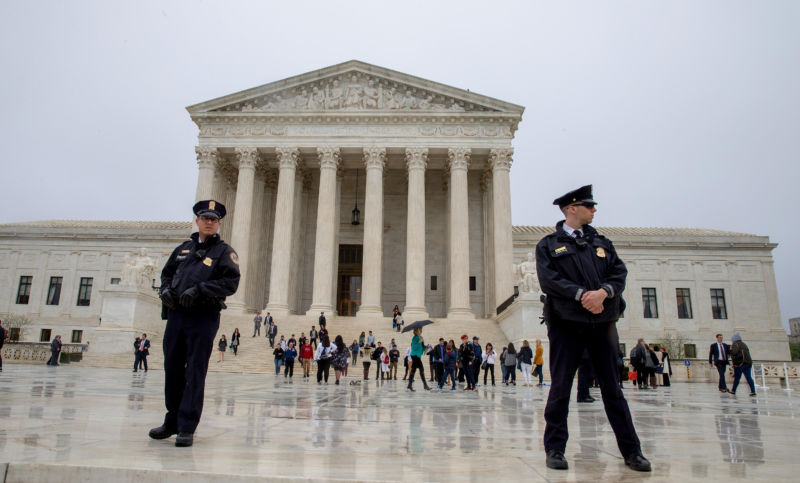Supreme Court rules: Yes, gov’t needs warrant to get cellphone location data

Enlarge / Protesters gather outside the Supreme Court for the No Muslim Ban on April 25, 2018 in Washington, DC. (credit: Tasos Katopodis/Getty Images for MoveOn.org)
In a 5-4 decision issued Friday, the Supreme Court of the United States ruled that if the government wants to collect a suspect's cell-site location information (CSLI)-detailed, granular data that shows where a person is every few seconds-it needs a warrant to do so.
However, the court declined to overturn the controversial "third-party doctrine," the 1970s-era legal precedent that found there was no "reasonable expectation of privacy" in data collected by a third party, like a phone company. The third-party doctrine, which was created by two cases known as Smithand Miller, was the underpinning for the National Security Agency's Section 215 metadata program, which was exposed by former contractor Edward Snowden.
Building on two other previous pro-privacy decisions that the court reached in recent years, Chief Justice John Roberts, writing for the majority, found that cell phones are different.
Read 5 remaining paragraphs | Comments